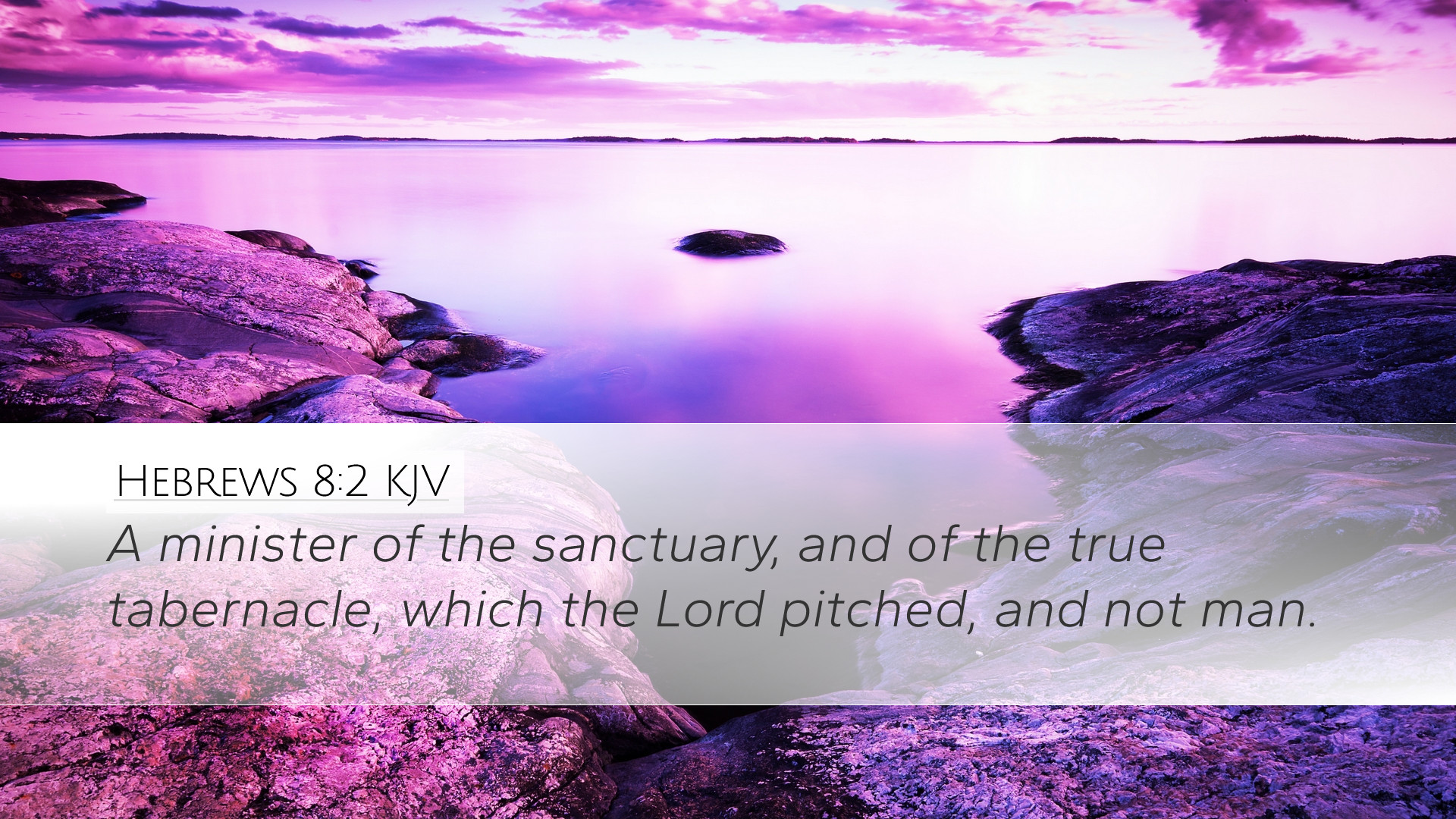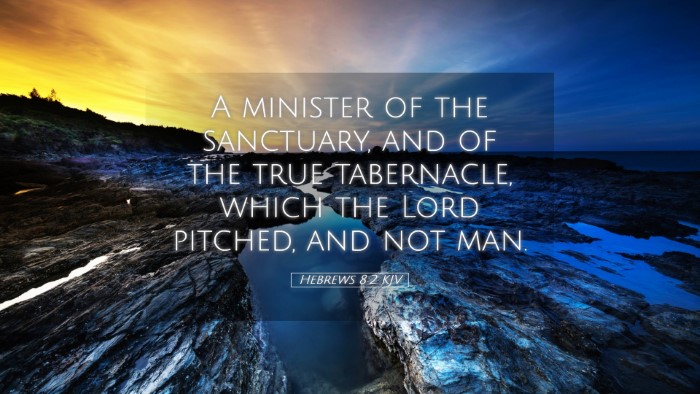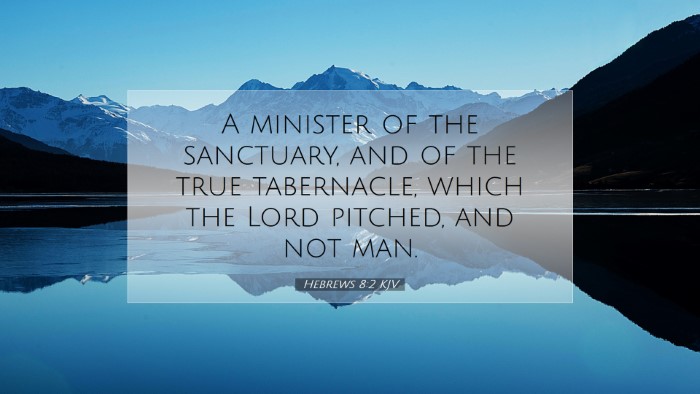Old Testament
Genesis Exodus Leviticus Numbers Deuteronomy Joshua Judges Ruth 1 Samuel 2 Samuel 1 Kings 2 Kings 1 Chronicles 2 Chronicles Ezra Nehemiah Esther Job Psalms Proverbs Ecclesiastes Song of Solomon Isaiah Jeremiah Lamentations Ezekiel Daniel Hosea Joel Amos Obadiah Jonah Micah Nahum Habakkuk Zephaniah Haggai Zechariah MalachiHebrews 8:2
Hebrews 8:2 KJV
A minister of the sanctuary, and of the true tabernacle, which the Lord pitched, and not man.
Hebrews 8:2 Bible Commentary
Commentary on Hebrews 8:2
Verse Overview: Hebrews 8:2 states, "A minister of the sanctuary, and of the true tabernacle, which the Lord pitched, and not man." This verse serves as a pivotal point in understanding the priestly ministry of Jesus Christ and the nature of the new covenant.
Insights from Public Domain Commentaries
Matthew Henry's Commentary
Matthew Henry emphasizes the significance of Christ's ministry in the heavenly sanctuary. He notes that the word "minister" indicates a priestly role, suggesting that Jesus Christ is not only a sacrificial lamb but also a mediator of the new covenant. Henry draws a distinction between the earthly tabernacle and the heavenly one, implying that the former was just a shadow of the reality found in Christ.
Henry elaborates on the concept of the "true tabernacle," which was established by God rather than by human hands. He points out that this indicates a more perfect and lasting system of worship. In contrast to the Old Covenant, which was temporary and incomplete, the new covenant through Christ is everlasting and fulfills the intentions of God’s salvation plan.
Albert Barnes' Notes on the Bible
Albert Barnes adds depth to the discussion of the "sanctuary" mentioned in this verse. He describes it as the place of divine worship, emphasizing that Christ's current role as a minister occurs in heaven, the true holy place. This heavenly ministry contrasts sharply with the Old Testament priests who served in an earthly tabernacle that required annual sacrifices.
Barnes points out that the phrase "which the Lord pitched" signifies God's direct involvement in the establishment of this heavenly tabernacle. It underscores the permanence and divine authority of the new covenant. He explains that this setting establishes a framework through which believers can experience a closer relationship with God, as it is unrestrained by temporal limitations.
Adam Clarke's Commentary
Adam Clarke expounds on the implications of Christ being a "minister of the sanctuary." He addresses the fulfillment of the prophecies regarding the eternal priesthood of Christ, contrasting it with the Levitical priesthood that was subject to mortality and imperfection. Clarke explains that Jesus serves in the true tabernacle, which transcends the limitations of the earthly structure.
Clarke also discusses how the term "tabernacle" symbolizes the presence of God among His people. He suggests that through Christ, believers have direct access to God, reflecting the intimate relationship made possible by the new covenant. The concept of the true tabernacle encourages believers to recognize their position in Christ as priests and partakers of this divine grace.
Theological Implications
- Christ's Mediatorial Role: The verse emphasizes the unique role of Christ as the mediator between God and humanity. This new covenant highlights the transition from the old sacrificial system to a direct relationship with the divine.
- The Nature of the True Tabernacle: It is critical to understand that the "true tabernacle" indicates a divine establishment, offering a more profound and eternal experience of worship.
- Access to God: The significance of Christ's ministry allows all believers to access God's presence, breaking down the barriers that existed in the Old Covenant.
Pastoral Application
For pastors, this verse provides a foundation for preaching about the priesthood of Christ and the implications of the new covenant for the congregation. It invites a deeper understanding of God's presence in their lives and inspires worship that acknowledges Christ's role in their relationship with God.
Moreover, students and scholars can explore the contrast between the Old and New Covenants, fostering a robust theological dialogue around themes of worship, access, and the nature of divine mercy through Christ’s ministry.
Conclusion
Hebrews 8:2 encapsulates the essence of Christ's work as our High Priest, ministering in the true tabernacle ordained by God. The insights from prominent public domain commentaries elucidate the rich theological layers embedded in this verse. This understanding not only elevates the study of Scripture but also enhances believers' appreciation of their faith in Christ's eternal priesthood.


